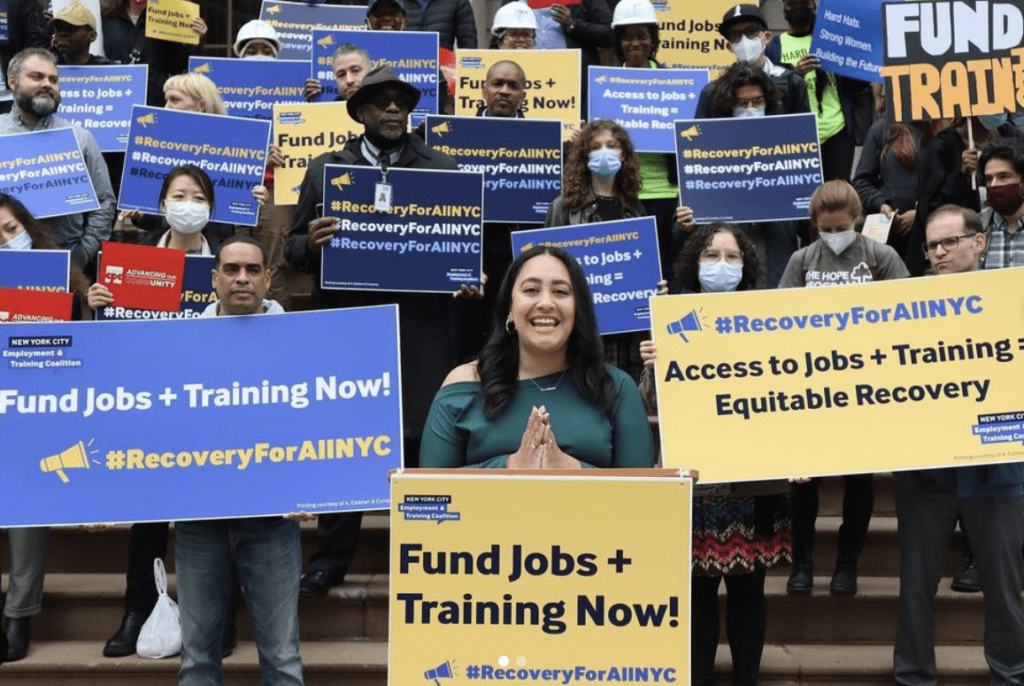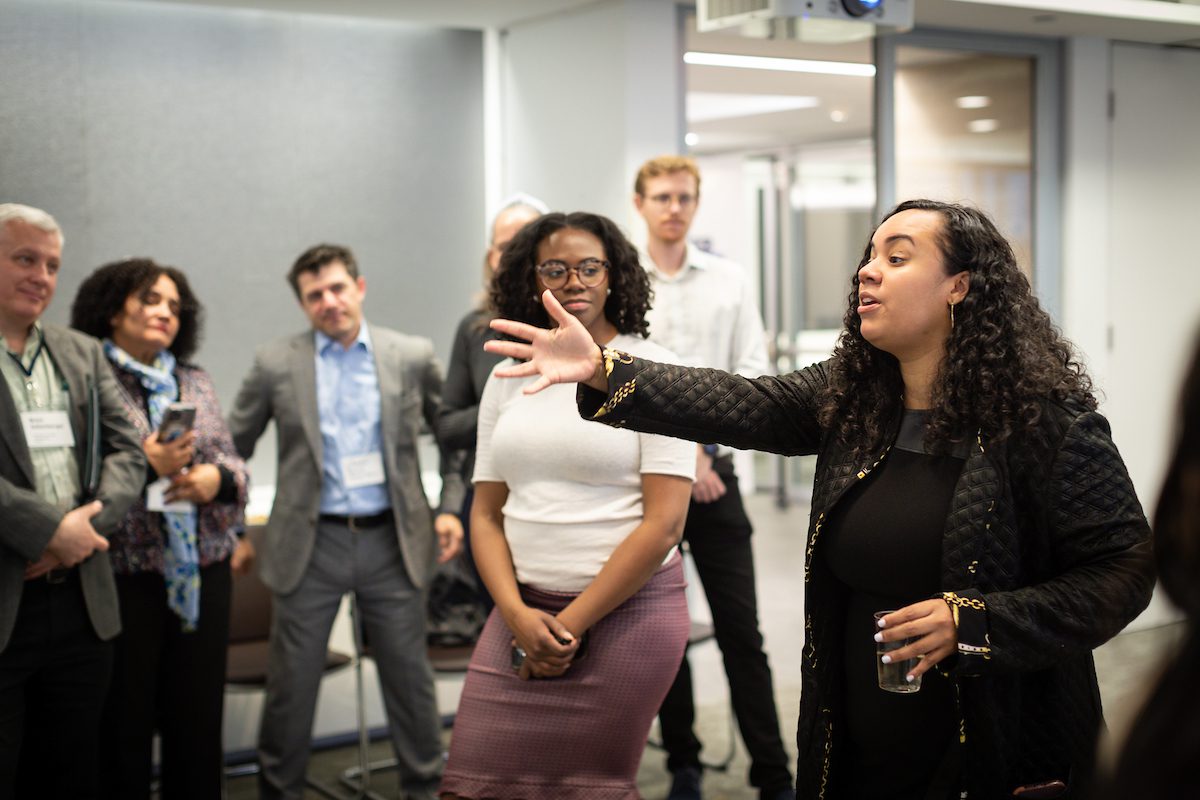Our Approach
Convene
NYCETC brings together New York City’s community of talent development organizations, colleges and universities, labor unions, and businesses to understand our collective training and talent needs.
Through conducting research, issuing surveys, hosting panel discussions and roundtables, and more, NYCETC maintains a pulse on how the workforce development community is thinking at large, keeping track of its successes, challenges, and opportunities to improve.
With this shared focus on strengthening New York City’s workforce development community, NYCETC actively fosters cross-collaboration among various nonprofits, educational institutions, unions and businesses to create more inclusive economic outcomes.
Innovate
NYCETC works to discover new and innovative ways to create a truly interconnected talent development system that meets 21st Century talent needs.
Through strategic partnerships, driving new programs, and publishing original research and policy recommendations, NYCETC frequently provides new insights and solutions to build an economy that works for everyone.
NYCETC’s members are on the cutting edge when it comes to creating and implementing new methods of program delivery, including remote and digital first learning opportunities, to ensure workforce solutions remain accessible to all, while remaining current with the latest business needs.
Advocate
NYCETC is the voice of NYC’s workforce development community and we are committed to holding our leaders accountable. Our work with elected officials and agencies leads us to advocate for fundamentally shift and align systems, investments and decision making processes that fuel our economy toward a talent-driven economic development model, one which recognizes (workers and) human capital as the primary pillar, creator and source of prosperity and growth within our communities.
People: Invest in improving all New Yorkers’ ability to access economic opportunity through the development, expansion and full funding of effective training models and upskilling programs that connect New Yorkers to essential and growth sectors, as well as prepare them with 21st century skills to navigate the evolution of industries and company work culture
Community: Align and embed local talent development into economic development processes and practices, including projects developed in response to COVID, such as initiatives focused on life sciences, public health, and sustainability and resiliency, as well as Federal stimulus projects to ensure that economic development creates jobs for local residents
System: Design an intentional system that includes education, job training and employment services, economic development and the NYC Workforce Investment Board to increase the visibility, access, alignment, volume and quality of services

Policy Vision
New York City’s workforce development system exists to maintain the city’s presence as the most competitive and vibrant economy in the world by one, uplifting every New Yorker and addressing income inequality through 21st century skills development and equal access living wage careers; and two, meeting the dynamic talent needs of small and medium-sized enterprises (SMEs) and large employers across sustained employment and projected growth industries.
Reckoning with a pandemic and historic inequity
The health and economic decimation from the Covid-19 pandemic continues to hit those of us that have historically and systemically always been hit, fostering an ongoing economic recession and more-than-double-the-national-average unemployment rate. Coupled with deepening inequity issues, the long-term disinvestment in infrastructure and our communities, and mounting consequences of the climate crisis, these issues have reached emergency thresholds for marginalized communities due to political inaction and exclusion from resources and decision-making tables.
Talent development for an equitable and inclusive recovery
The new Mayoral administration and City Council represent a unique opportunity – one that can begin the process for an equitable economic recovery for our city that is long overdue. Given Mayor Eric Adams’ long standing relationship with both the New York City business community and its people, as well as a historically diverse City Council, the city has the ability to springboard towards an inclusive economic recovery by prioritizing a talent-centric inclusive growth model, in tandem with traditional approaches that solely consider labor-market demands and capital infrastructure. This framework recognizes and empowers human capital – working and enterprising New Yorkers across the five boroughs – as the primary pillar and source of prosperity and growth within our communities and among our businesses. For this to happen, talent is required from all over our city.
Campaigns
NYC Inclusive Growth Initiative
The goal of the NYCIGI is to develop a steering committee that is representative of the diversity of New York City in terms of race, ethnicity, gender, sexuality, immigration history and status, incomes status, thought and disability. It will be proactively inclusive of people with non-traditional educations, people who do not have access to other networks of civic influence in New York City, and people with working-class backgrounds and occupations.
NY Workforce Recovery Strategy Group
In direct response to the growing crisis of unemployment and small business collapse in New York City as a result of the COVID-19 health crisis, leaders from the public and private sector have partnered to form the “NY Workforce Recovery Strategy Group” and create space for a solutions-oriented discussion to the current economic challenges. The NYC Employment and Training Coalition organized the formation of this group.
Invest in Skills NYC
Invest In Skills NY is a statewide advocacy partnership between employers, economic development and workforce development communities to urge the Governor and New York State Legislature to prioritize a skilled workforce as an economic necessity. Funded by the New York Community Trust, the NYC Workforce Funders and the Ralph C. Wilson Foundation, this effort aims to raise the collective knowledge about workforce development as economic development and encourage policy reforms to meet the changing demands of the labor market.

